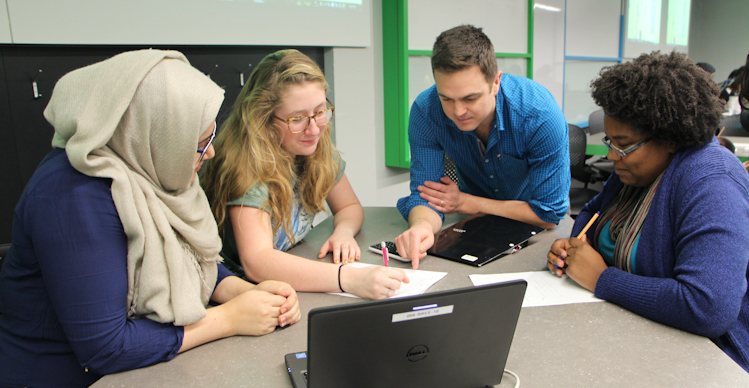When I was finalizing my university decision, my biggest hesitation about attending McGill University was the sheer class size of core requirement courses for my then-major Economics. I had never had a class with more than 25 students throughout my elementary and secondary education, so I felt both overwhelmed and uncertain of how to navigate classes of a few hundred students. Fortunately, in the second semester of my first year at McGill, I took a First-Year Seminar: “Images of Otherness” (GERM 199). The course helped me grow in various academic areas and increased my confidence in communicating with a professor. Thanks to their small class sizes, First-Year Seminars permit students to build stronger relationships with their peers and professors. Because of this, McGill should increase the number of courses offered and expand the content they cover.
First-Year Seminars are available once per year for first-year U0 or U1 students. There are currently 22 First-Year Seminars, each of which have a maximum cap of 25 students, depending on the subject. Subjects range from the Department of English’s “Literature and Democracy” (ENGL 199) to the Department of Psychiatry’s “Mental Illness and the Brain” (PSYT 199). The number of First-Year Seminars McGill offers has drastically increased over the past few years, from only four seminars offered in the 2015-2016 Academic Year.
To be honest, I took “Images of Otherness” on a whim to fill up credits required for that semester, but I had a more positive experience than in classes where I had over 200 classmates. Due to the small class size, First-Year Seminars aid students in developing skills that can be used in other classes and encourage them to participate. My professor was able to provide each student with lengthy feedback on assignments in order to improve their writing skills. The intimate setting helped us to create close bonds with each other and on the last day of the semester, we even had a potluck to commemorate the end of our time together. Arranging an end-of-semester celebration or other intimate gathering with a Leacock 132 entry-level class would be near impossible.
There is a correlation between class size and student success. London School of Economics Professors Oriana Bandiera and Valentino Larcinese and University College London Professor Imran Rasul found that students do worse in larger classes. In contrast, their study showed that students in small classes such as First-Year Seminars performed better on tests. Furthermore, high ability students–those who are academically above average–are the most negatively affected by a large class size. McGill is a school with high admission standards full of high-achieving students. The university should expand the availability of small classes to aid its high-ability students who research has shown perform better in smaller class sizes.
There are, however, ways in which First-Year Seminars can be improved. First of all, the number offered at McGill must continue to grow, as there are not enough classes for each first-year student to take one if they wanted to. The 2016-2017 undergraduate entering class consisted of 6,467 students. If there were to be enough First-Year Seminars for every student, there would need to be 259 classes–compared to the 22 currently offered. Multidisciplinary courses would attract students from various faculties. For example, a history of chemical discoveries course would allow students who are interested in history and those in chemistry to learn together and from each other.
When incoming students select their courses for the fall semester, they should take a First-Year Seminar to improve on skills that can be used in other classes as well as to get individual attention from a professor. First-Year Seminars have benefited students like myself and the university should continue to expand the number of courses and the content taught.








